

Simon J.A. Taufel…My favorite ICC Cricket Umpire!!!
By Francis Saldanha
Bellevision Media Network
23 October 2012: Simon Taufel has been one of the most respected umpires for over a decade due to his excellent decision-making and man-management skills. He has been a role model for umpires globally who look to him for inspiration and guidance. Started as a Grade-V umpire and in his early days, Australian Simon Taufel has ended his international umpiring career after the Twenty20 World Cup in Sri Lanka to groom the next generation of elite match officials for the International Cricket Council (ICC). The 41-year-old has umpired in 74 Tests and 174 one-day internationals in his outstanding career, winning ICC Umpire of the Year award for five successive years from 2004 to 2008. Taufel said in an ICC statement that he wanted to spend more time with his family.
Right from 2003, when he made it to the Elite Panel, which was in its second year then, Simon not only accepted the chance to perform at the higher levels of competition but seized the opportunity to challenge his fellow umpires to match his meticulous preparation and levels of performance. Many umpires, found his presence somewhat intimidating at first, until they realized it was just his dedication that was making them feel that way.
He may have wanted to keep his cap on at all times, but the world cricket community is united in doffing its collective headgear to one of the finest umpires of them all. A basic tenet in cricket is about respecting and agreeing with the umpire’s decision. In the case of Simon Taufel, players generally agree with him on almost every occasion. They accept his decisions because a very good percentage of them are correct and this has been mostly also validated by technology. But that is only part of the reason.
A lot of that respect comes because Simon has a measured and methodical way of dealing with people. He generally ensures that he keeps emotion out of the discussion which is not easy to do in the middle of a Test match when something is going on and you are not happy about it. Simon has usually been able to satisfy both sides if there is an incident and people have been confident in his ability to keep doing that. That is a major difference when it comes to gaining respect from players and coaches. Simon knows when to talk and when to keep quiet.
Despite being a young umpire, Simon has never been afraid to have his say if he thinks something is wrong. He has always had an opinion, and on most occasions it has been reasonable and considered. That is because he has done all his preparation and has usually been on the right track.
Simon leaves nothing to chance and it is this attitude that has ensured he has been prepared for any eventuality. On the field, when the pressure is on, he usually exudes a calmness that must impress everyone else around, who is generally passionately and emotionally involved in the outcome.
Simon has always been consumed by all things about cricket and was always thinking ahead. Between games, he was studying the Laws, attending nets sessions, and working in the gym on his fitness. In the early days, some of the umpires would joke at the way he wired himself to mentors of all sorts: at one point he had a life coach, a financial manager, an umpiring mentor and a physical mentor. But it was not that Simon was trying to cure some deficiency; instead, it showed his openness to experimenting. He was always going to try something different if it was going to improve his performance.
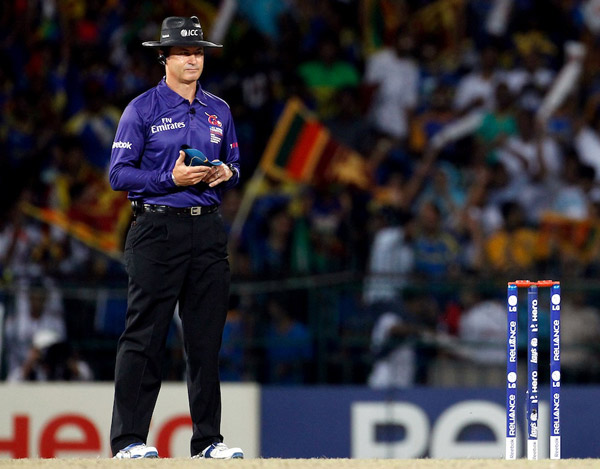

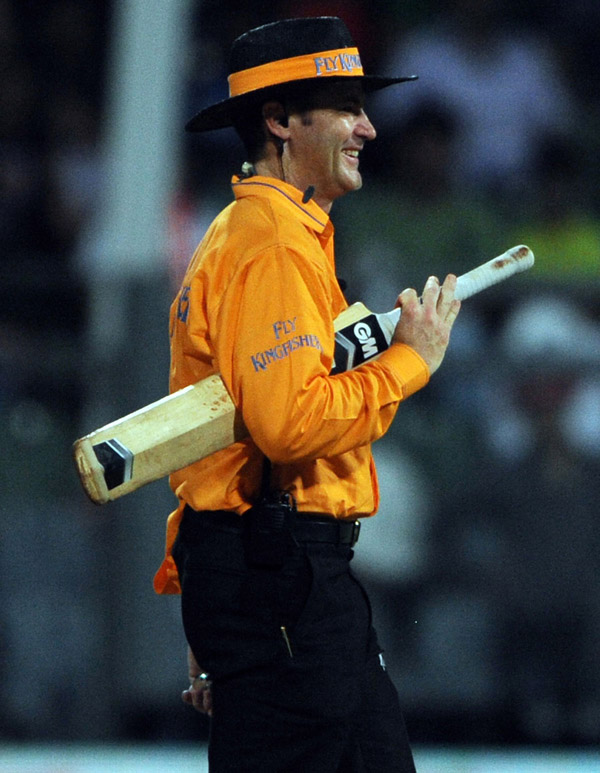
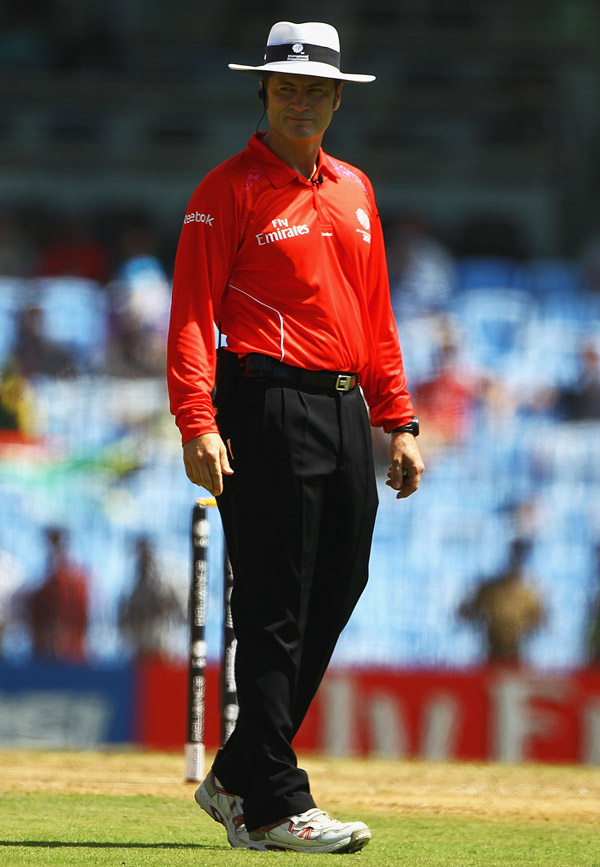
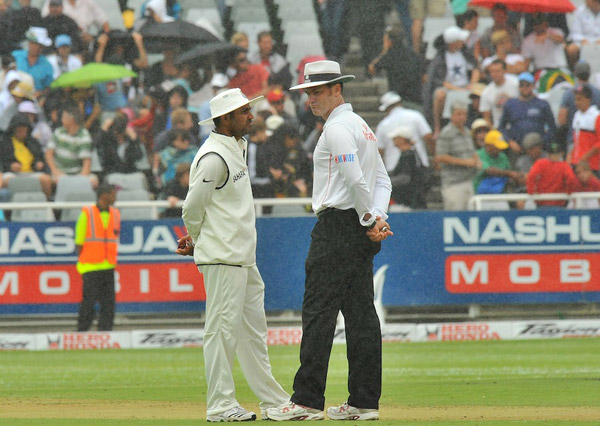
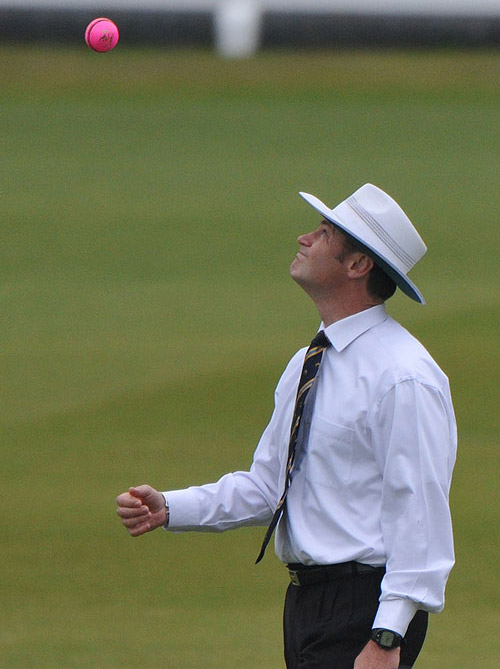

He was a perfectionist, no doubt, but he accepted his mistakes. It was not that he stopped making mistakes, but he clearly used the experience to develop strategies to prevent a repetition. It was entirely predictable that Simon would win the ICC Umpire of the Year Award for the first five years of its existence; such was the excellence of his on-field performances.
To an outside observer, it often seemed that Simon was as clinical and concise in his decision-making as to be almost robotic, lacking humor or personality. However, after several years on the Elite Panel, his colleagues began to observe that he had begun to develop both qualities in varying degrees.
In his new position as ICC umpire performance and training manager, he will be looking forward to help and create professional programs and resources to support the current and future generations of cricket match officials. When he looked back, there are many memorable moments of his umpiring career but as he can fondly remember the India versus Pakistan game at Mohali during the 2011 World Cup semi-final as the most exciting one, Taufel said during his interaction with media at the Premadasa Stadium recently. The prime ministers of the two countries were present and it was more than just a game of cricket. He believes there were two finals in 2011 World Cup, the semi-final and the final.
The 41-year-old Australian said that the "toughest match" of his career was a Test match between India and England in Mumbai which were the "longest five days as he was not well and was bitten by the stomach bug in Mohali. It was a physical as well as mental Test for him. There are many challenges for an international umpire and Taufel cited a few examples when he had to be at his best. Shane Warne bowling 25 over’s on the fifth day at a Test match in Adelaide or Murali bowling 25 over’s on the final day at Kandy were some of the big moments of his umpiring career.
Taufel also had a horrifying experience when he was a witness to the terrorist attack on the Sri Lankan team bus and match officials near the Gaddafi Stadium in Lahore back in March, 2009 and, by his own admission, the incident changed his priorities in life. That day did change him personally and he thinks my family is happy to see me sitting over here. I learnt a lot on that day and it helped me focus on the priorities of his life. After that incident, he had to make a difficult phone call to his wife," Taufel recollected. But he didn’t forget to mention that he had "very fond memories" having officiated in a lot of international matches in Pakistan.
In his new role as an ICC High Performance Manager for Umpires, Taufel is happy to go out on his own terms. Asked about what it takes to make a good umpire, Taufel replied “It requires all kind of personal skills, man management, and technique. It really is a different challenge.
As for the Indian Umpires in the ICC panel, since last few years India hasn’t been able to produce ICC Elite Panel umpires, but the Aussie said that it would happen very soon. He said that no doubt in his mind that India will be able to produce some good Elite Panel umpires as they have a lot of good umpires.
Off the field, Simon though is a very private person who is not been afraid to try out new things. Umpiring is a very lonely job, but Simon made it popular. The fact that he did not have any obvious flaws in his performance was very attractive. He certainly set an example for everyone to follow.
There is absolutely no doubt in my mind that Simon James Arnold Taufel is the best umpire of all time. Better than even the late David Sheppard. Well done Simon!!!!!! It’s still heartening to know that you will still be involved with the ICC.